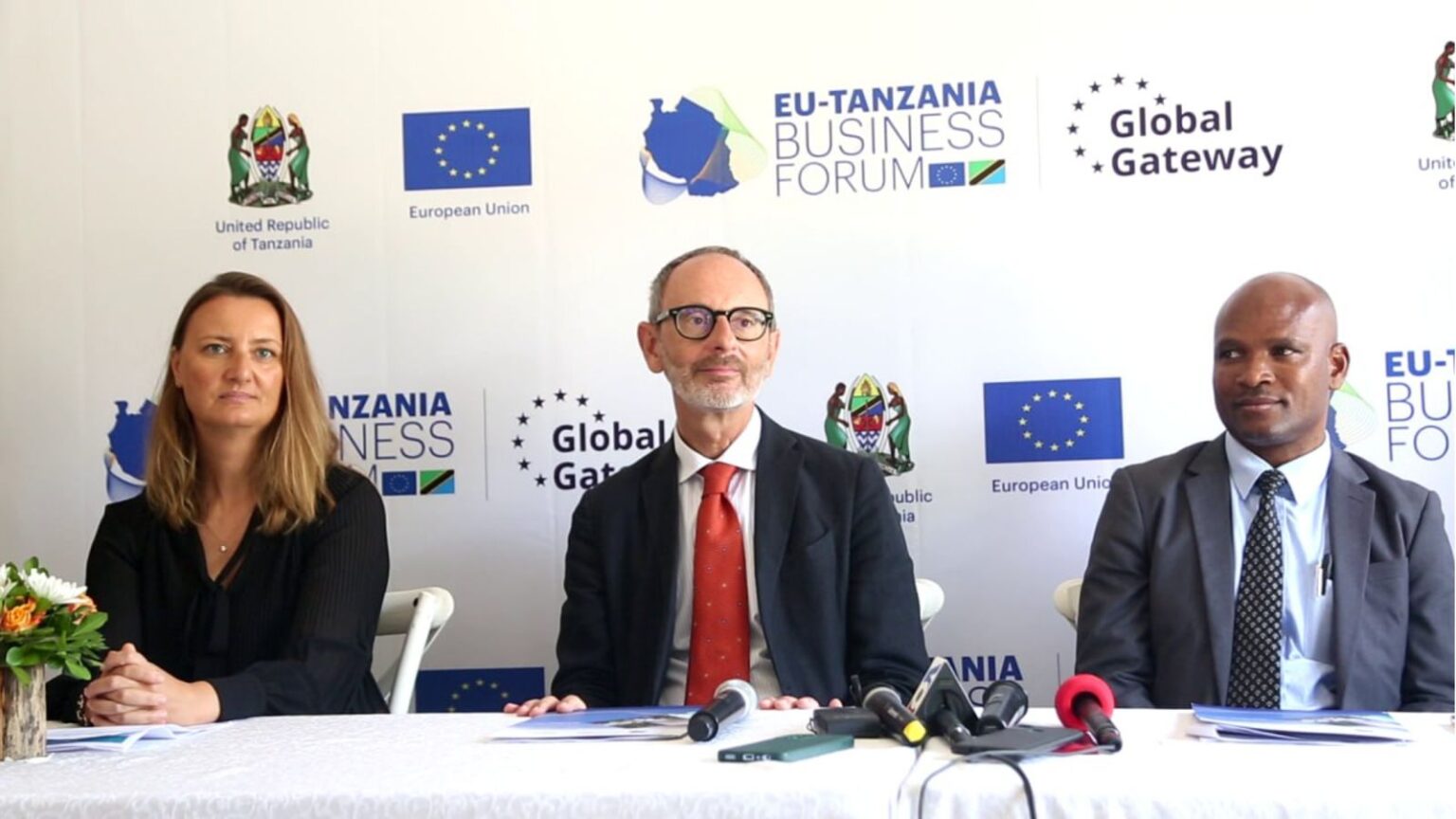- The European Union Investment Bank (EIB) have agreed with commercial banks to unlock a whole new business financing valued at around $580 million.
- The EU is optimistic about the government’s efforts to attract businesses and support investment
- Tanzania Development Vision (TDV) 2025 indicates that about 54.3 percent of Tanzania’s small, medium and micro enterprises (MSMEs)
Over the past two years, President Samia’s administration has not only brought back confidence to investors who left Tanzania but attracted new ones and reinforced the old partners, including the United States.
Tanzania is walking confident with almost $1 billion in investment from various companies from the US, thanks to President Samia’s US visit in April 2022.
The European Union Investment Bank (EIB) and other investors have agreed with commercial banks in Tanzania to unlock a whole new business financing valued at around $580 million.
The support is breathing life into additional capital to small and medium-sized businesses in Tanzania, helping the growth of the private sector, which is essential for Tanzania’s economic development.
According to information from The Citizen, EIB vice president Thomas Ostros noted that the funds will complement women-led businesses and blue economy investments—mushrooming in Tanzania.
The Tanzania Investment Committee records show 41 projects were registered nationwide in February 2023m a 128 per cent rise in registered projects.
READ:Unlocking investment opportunities in Tanzania
Why EIB chose Tanzania
The EU is optimistic about the government’s efforts to attract businesses and support investment – which will enhance high numbers in foreign direct investment (FDI).
EU-Tanzania Business Forum is yet another opportunity that presents Tanzania with a deep connection with world-class business leaders to put Tanzania on the global investment map.
Tanzania has made strides in investment challenges by working on setbacks that hindered the sector’s development. In 2022, the EU pointed out various areas that Tanzania has addressed.
The EU mentioned a few challenges, including cumbersome administrative procedures, unfriendly labour laws, a harsh taxation system, and red tape in acquiring investment and residence permits—all of which have been addressed by the government.
More importantly, the nation’s private sector holds a vital potential to expand the nation’s reach to more comprehensive and essential markets for locally made products and services.
READ:Elon Musk’s Starlink Investment in Tanzania: Why so complicated?
Tanzania Private Sector
According to a study by the Tanzania National Bureau of Statistics (NBS), at least 2.14 million people were employed in the formal sector in 2014, and 64 percent were in the private sector.
This context shows the sector’s vitality in supporting economic development.
Meanwhile, various projects have been registered by the TIC across transportation, manufacturing, services, tourism, agriculture and energy sectors over the past months worth $156.17 million spread across the mentioned sectors.
Over the past years, Tanzania’s private sector has been challenged to avoid the “in-ward looking” and train its eyes for the global market, demanding various services and products the industry can provide.
According to Tanzania Chamber of Commerce, Industry and Agriculture (TCCIA) records, at least 95 percent of businesses in Tanzania are small enterprises – responsible for contributing around a third of the nation’s GDP and generating 40 percent of total employment.
Further, the Tanzania Development Vision (TDV) 2025 indicates that about 54.3 percent of Tanzania’s small, medium and micro enterprises (MSMEs) are women-led businesses and fall under the informal sector, mostly in agriculture.
“They also include survivalist enterprises, whose income generation is less than the minimum income standard or poverty line. Often there are no paid employees, and the asset value is minimal.”
Moreover, these enterprises include vendors, brokers, itinerant traders, and hawkers. On the other hand, mini and micro enterprises tend to have low survival rates and are challenging to target and serve.
On the other hand, the TCCIA MSMEs succumb to the trap of failing to secure financial resources from banks and financial institutions, as these require collaterals, accurate accounting information, and documentation of borrowed projects that MSMEs are unable to provide.
Further down the line, the EU finds Tanzania’s current investment trajectory promising and addresses crucial trade and investment challenges that open up room for multiple investors to contribute to Tanzania’s development agenda.
Unequivocally, the EU displayed a rather inspirational note to Tanzania, which exports are lesser than what the EU brings.
According to the EU Investment in Tanzania Report 2022, they were valued at $92 million last year, while imports stood at around $456 million.
The EU promised to assist Tanzania’s investors in accessing markets in the EU. Hence, the February EU-Tanzania Business Forum, brought vital opportunities for Tanzanian business leaders and markets to capitalize on networking and leads that yields access to markets.
